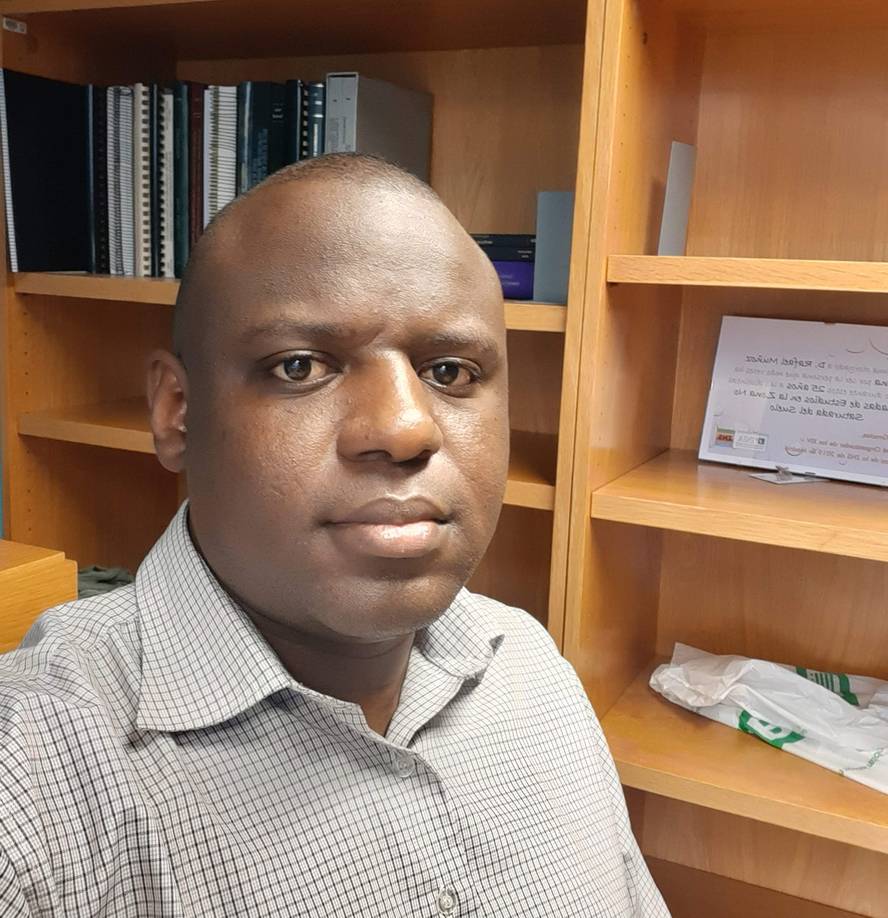"Diversity is necessary because it is at the center of research ethics"
Brian Omondi Oduor, born in Nairobi, Republic of Kenya, has come to Navarra to perform his thesis thanks to an Iberus Talent scholarship offered by UPNA. In particular, a study is being carried out on the effects of agriculture on soil erosion and water quality.
He explains that since childhood he liked mathematics and science, such as physics and chemistry, and was always content to solve problems. At the end of high school, he realized that he could have more impact on society through science, and so he decided to study engineering when he got to college. It says: “My desire to help my Kenyan community in finding solutions aroused my desire to move forward in science and technology. In fact, climate change has aggravated traditional problems such as food insecurity, water problems, low agricultural performance, poor infrastructure…”
It has not been easy for him to fulfill his purposes, especially because he has made him move away from his family: “I have had to move away from my country and from my family and go abroad to continue learning and acquiring the knowledge and skills necessary to progress professionally. Since 2015, I've spent most years away from home. First I went to Algeria to perform the 2015/2017 Master in Water Engineering at the Pan-African University of Water and Energy Sciences (PAUWES). At the end, I was hired by the United Nations University (UNU-EHS) to work as a researcher in Algeria. In 2020 I left Algeria and came to Spain to do doctoral studies.”
It underlines that the departure from the country of origin has several challenges, such as learning a new language and understanding cultural, religious, food, etc. However, it makes clear that family and friends have always protected him. “They have shown me all the solidarity on this journey and encouraged me never to give in. My uncle, Dr. Wilfred Onmara, influenced my career choice a lot. He recommended that in my undergraduate studies, we should study water and environmental engineering to help solve our social challenges. At that time it was one of the issues that aroused scientific interest in my country and coincided with my vision.”
In this sense, he underlines that the scholarship has been a huge boost: “It allows me, not only to advance academically and in research, but to have a global impact on the field that I am researching through higher publications. Moreover, I intend to improve the agricultural and aquatic sectors through the models we are investigating, which serve to make forecasts, plan and develop sustainable solutions.”
Despite the difficulties, moving forward
He recognizes that the doctorate is being an unbeatable experience from the research point of view. But it is not so good from a social point of view, because it does not know Castilian, which makes it very difficult to communicate and integrate into the community. However, he is learning and trying to use Spanish to be able to speak with others as soon as possible.
Asked why diversity in research is necessary, he clearly answered yes: “Yes, I think the diversity of research is necessary because it is at the center of ethics and research integrity. Equity and equality in scientific research should not be ignored. Better and more accurate results require shared ideas and opinions. Any undertaking carrying out an appropriate investigation must overcome any discrimination (sex, age, ethnic origin or race) and minorities must be able to contribute similarly to the main social groups.”
He said that in this regard, trends had been positive in recent years, especially in the countries of the northern hemisphere (Europe, the USA and Canada). “However, much remains to be done, especially in the area (Africa, Asia and Latin America), to achieve greater parities and equal research.”
Right now, your dream is to finish the PhD within the scholarship period. “I would like to publish numerous high-impact studies in my current research that would help change the development of policies in agricultural fields, especially in the Mediterranean region.”
In the future, he would like to become an expert in the use of hydrological models to address issues related to agriculture, water and climate change. “My goal is to establish a knowledge centre to develop capacities and provide advisory services to raise awareness of the impact of agriculture on water resources. In addition, I want to offer advisory services to governments and non-governmental organizations on sustainable ways to improve the agricultural sector, specialized in water and food security.” At the moment, he's on the right track to fulfill his dreams.






